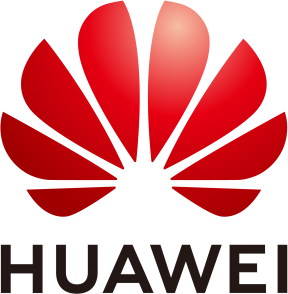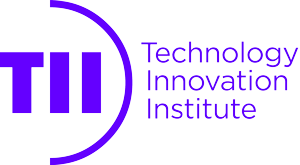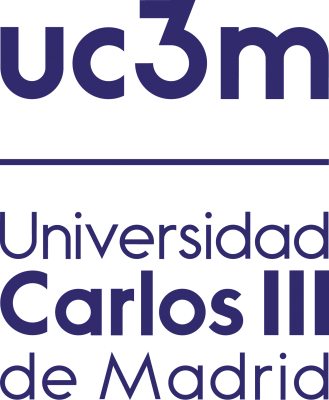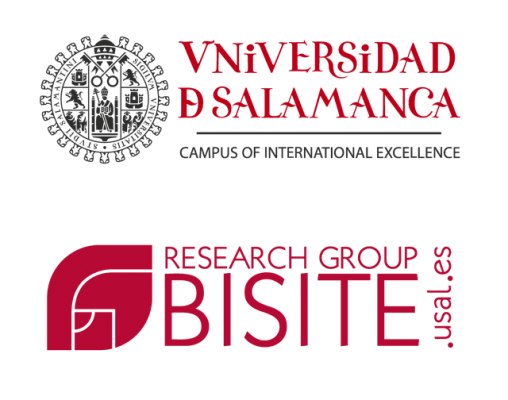Most of the Industry Program will be happening on-site and live streamed to remote attendees, while a small part will be only virtual. All presentations and panels will be available to be watched on-demand on the virtual platform from the conference dates.
Download here the Industry Program details (Updated 6 Dec)
List of panels:
IPA 1: Challenges for 5G Deployments: Operator and Industrial Perspectives
IPA 2: Europe’s industrial and digital development. The commitment of the European Digital Innovation Hubs
IPA 3: Unleashing the true power of autonomous networks
IPA 4: Integrated Sensing and Communication (ISAC), Key Enabler for 6G Industry
IPA 5: Emerging and Future Trends in Satellite Communications
IPA 6: Industrial IoT: key technology enablers for its evolution
IPA 7: 5G and beyond - The Perspective of European Research Projects
IPA 8: Higher bandwidth and shortened latency requirements in PRIME Broadband Powerline (BPL)
IPA 1: Challenges for 5G Deployments: Operator and Industrial Perspectives
Moderator: Anwer Al-Dulaimi, Senior Manager for 5G Technology & Solution, Distinguished Member of Technical Staff, Montreal, Canada
Panelists:
Giovanni Romano, TIM Italy
Diego R. Lopez, Telefónica, Spain
Xavier Costa-Pérez, NEC, Germany
Panagiotis Demestichas, WINGS ICT Solutions and University of Piraeus
Russell Teague, EXFO, USA
Abstract: The 5G technology has dominated the research landscape for many years with strict KPIs requires that exceeds any previous generation. The industry took the lead for developing new innovative components that spans all over the network end-to-end. However, the 3GPP standards define a network that employs magnificent features for radio access, transport, core network, monitoring, etc. This is a network that resides over multi-cloud domains and fully automated to restructure in response to user demands and traffic changes. However, the 5G race has just began as vendors and solution providers are working hand to hand with operators to develop the necessary features that bring such a network into reality. This panel include experts from world leading operators and industries to identify what has been achieved so far and what is still to be done from production perspective. This panel will help both academic and industrial communities to prioritize their backlog for more focused effort towards the most needed solutions for 5G.
Biography:
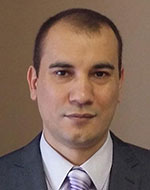 Anwer Al-Dulaimi
Anwer Al-Dulaimi
Anwer Al-Dulaimi is currently a Senior Manager 5G Technology & Solutions and Distinguished Member of Technical Staff at EXFO Inc., Montreal, Canada. He received the Ph.D. degree in electrical and computer engineering from Brunel University, London, U.K., in 2012 after receiving M.Sc. and B.Sc. honors degrees in communication engineering. He was a Postdoctoral Fellow with the Department of Electrical and Computer Engineering, University of Toronto, sponsored by Blackberry’s advanced research team. He is the chair of the newly IEEE FNI 5G Testbed Project working to develop a virtual testing platform for E2E network innovation. His research interests include 5G and 6G networks, cloud computing, Blockchains and cybersecurity. Anwer is the editor of IEEE Future Networks Series on 5G & 6G and guest editor for many IEEE journals. He was the recipient of the 2013 Worldwide Universities Network best paper for outstanding research in cognitive communications, best IEEE/WWRF VTM best paper award for 3 times. He is the chair of the IEEE 1932.1 ‘Standard for Licensed/Unlicensed Spectrum Interoperability in Wireless Mobile Network’. He is a Fellow of the Institution of Engineering and Technology (FIET), Associate Fellow of the British higher education Academy (AFHEA) and registered as a Chartered Engineer (CEng) by the British Engineering Council since 2010. He is a member of NSERC discovery grants committee, senior member of IEEE and a voting member of IEEE MobiNet Standards Committee.
Giovanni Romano
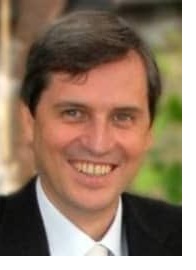 Giovanni Romano is currently coordinating Telecom Italia activities on technical standards related to radio access and spectrum. The role implies the identification of requirements to be transferred to standardizations fora such as 3GPP to define new technical solutions for the radio interfaces of GSM, UMTS, LTE, 5G/IMT2020 and their evolutions, and the evaluation of technical solutions under development. In March 2015, Giovanni was re-elected Vice-Chairman of 3GPP Technical Specification Group RAN for the period 2015-2017, following a first term period (2013-2015). Since 1996 Giovanni has been active in several international standardizations fora and he is currently attending 3GPP RAN and NGMN. Giovanni also coordinates Telecom Italia’s activities in ITU-R, GCF and groups dealing with radio aspects in 3GPP and ETSI. Until 2005 Giovanni was project leader of several activities within the R&D center of Telecom Italia, including UMTS performance evaluation, quality of service verification, standardization, field trials and testing.
Giovanni Romano is currently coordinating Telecom Italia activities on technical standards related to radio access and spectrum. The role implies the identification of requirements to be transferred to standardizations fora such as 3GPP to define new technical solutions for the radio interfaces of GSM, UMTS, LTE, 5G/IMT2020 and their evolutions, and the evaluation of technical solutions under development. In March 2015, Giovanni was re-elected Vice-Chairman of 3GPP Technical Specification Group RAN for the period 2015-2017, following a first term period (2013-2015). Since 1996 Giovanni has been active in several international standardizations fora and he is currently attending 3GPP RAN and NGMN. Giovanni also coordinates Telecom Italia’s activities in ITU-R, GCF and groups dealing with radio aspects in 3GPP and ETSI. Until 2005 Giovanni was project leader of several activities within the R&D center of Telecom Italia, including UMTS performance evaluation, quality of service verification, standardization, field trials and testing.
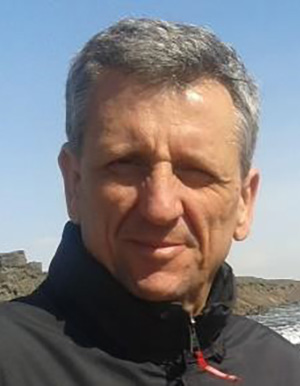 Diego R. Lopez
Diego R. Lopez
Dr. Diego R. Lopez is leading the Technology Exploration at the Global CTO Unit, within Telefónica I+D. His responsibilities are related to the definition and coordination of research projects in the areas of new networking technologies and network infrastructures. He is directly involved in activities related to network virtualization, core optimization, AAA, traffic analysis, and infrastructure security. He is the chair of ETSI ISG on Network Function Virtualization (NFV) and the representative of Telefónica in bodies related to network technologies and chairing the IRTF NFV Research Group. He has been appointed by the European Commission as member of the High-Level Expert Group on Scientific Data e-Infrastructures (HLEG-SDI). He received my MS from the University of Granada in 1985, and PhD degree from the University of Seville in 2001, with a thesis related to AI and fuzzy logic, and their application to control problems. Since 1985, he has worked for several private and public organizations, developing, and deploying communication services. From 2000 to 2011, he was responsible for the Middleware Area of RedIRIS, the Spanish National Research and Educational Network. As part of these tasks I actively participate in national and international working groups and projects, and I have collaborated in several versions of the e-Infrastructure Reflection Group White Paper, under the auspices of the EU Presidency, in areas related to security and digital identity services. His current areas of interest are network middleware, network virtualization, infrastructural and mediation services, infrastructural security, the application of AI techniques to network management and security, and new network architectures.
Xavier Costa-Pérez
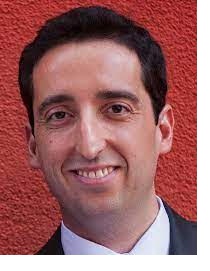 Xavier Costa-Pérez is ICREA Research Professor, Scientific Director at the i2cat Research Center and Head of 5G Networks R&D at NEC Laboratories Europe. His research focuses on the digital transformation of society driven by the interplay of mobile networks and AI. His team generates research results which are regularly published at top scientific venues, produces innovations which have received several awards for successful technology transfers, participates in major European Commission R&D collaborative projects and contributes to standardization bodies such as 3GPP, ETSI NFV, ETSI MEC and IETF. Xavier has experience raising funding both internally inside a company as well as externally in competitive public R&D programs. He has held multipe leadership positions both in industry and research organizations such as Deputy General Manager, Chief Researcher, Technology Board member and Scientist Advisory Board Member. As a standards delegate, he contributed to multiple standardization bodies (e.g. IEEE 802.11, 802.16, WiFi Alliance, 3GPP, ...) and was recognized in several standards as a top contributor. He has served on the Organizing Committees of several conferences (including IEEE Greencom, WCNC, and INFOCOM), published papers of high impact and holds tenths of granted patents. Currently, he is serving as Associate Editor at IEEE Transactions on Mobile Computing (TMC), IEEE Transactions on Communications (TCOM) and Elsevier Computer Communications journals (COMCOM). Xavier received both his M.Sc. and Ph.D. degrees in Telecommunications from the Polytechnic University of Catalonia (UPC) in Barcelona and was the recipient of a national award for his Ph.D. thesis.
Xavier Costa-Pérez is ICREA Research Professor, Scientific Director at the i2cat Research Center and Head of 5G Networks R&D at NEC Laboratories Europe. His research focuses on the digital transformation of society driven by the interplay of mobile networks and AI. His team generates research results which are regularly published at top scientific venues, produces innovations which have received several awards for successful technology transfers, participates in major European Commission R&D collaborative projects and contributes to standardization bodies such as 3GPP, ETSI NFV, ETSI MEC and IETF. Xavier has experience raising funding both internally inside a company as well as externally in competitive public R&D programs. He has held multipe leadership positions both in industry and research organizations such as Deputy General Manager, Chief Researcher, Technology Board member and Scientist Advisory Board Member. As a standards delegate, he contributed to multiple standardization bodies (e.g. IEEE 802.11, 802.16, WiFi Alliance, 3GPP, ...) and was recognized in several standards as a top contributor. He has served on the Organizing Committees of several conferences (including IEEE Greencom, WCNC, and INFOCOM), published papers of high impact and holds tenths of granted patents. Currently, he is serving as Associate Editor at IEEE Transactions on Mobile Computing (TMC), IEEE Transactions on Communications (TCOM) and Elsevier Computer Communications journals (COMCOM). Xavier received both his M.Sc. and Ph.D. degrees in Telecommunications from the Polytechnic University of Catalonia (UPC) in Barcelona and was the recipient of a national award for his Ph.D. thesis.
Panagiotis Demestichas
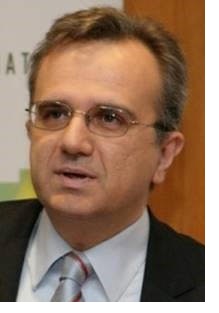 Panagiotis Demestichas is a Professor at the University of Piraeus, Greece. Currently, he focuses on the development of systems for the SMEs WINGS ICT Solutions (www.wings-ict-solutions.eu) and Intelligent (www.incelligent.net). He holds a Diploma and a Ph.D. degree on Electrical Engineering from the National Technical University of Athens (NTUA). He holds patents, has published numerous research papers, has numerous citations and is a member of the ACM and a Senior Member of IEEE. Panagiotis is an expert in numerous technologies, essential to the realization of smart networks and services. In particular, he and his teams have developed innovations related to: (1) the IoT; (2) Wireless (5G/B5G/6G), cloud and big data, orchestration and diagnostics; (3) AI (machine learning, etc.); (4) Visualization (including AR/VR). He has a record of high-quality research, and of transforming R&D results into products (and services) of business and societal value. He has led the development and delivery of the products for various vertical sectors, namely, air quality management) utilities, transportation infrastructures, aquaculture, food safety and agriculture, digital wellness and health. His teams deliver services in numerous other vertical sectors and for infrastructure optimization.
Panagiotis Demestichas is a Professor at the University of Piraeus, Greece. Currently, he focuses on the development of systems for the SMEs WINGS ICT Solutions (www.wings-ict-solutions.eu) and Intelligent (www.incelligent.net). He holds a Diploma and a Ph.D. degree on Electrical Engineering from the National Technical University of Athens (NTUA). He holds patents, has published numerous research papers, has numerous citations and is a member of the ACM and a Senior Member of IEEE. Panagiotis is an expert in numerous technologies, essential to the realization of smart networks and services. In particular, he and his teams have developed innovations related to: (1) the IoT; (2) Wireless (5G/B5G/6G), cloud and big data, orchestration and diagnostics; (3) AI (machine learning, etc.); (4) Visualization (including AR/VR). He has a record of high-quality research, and of transforming R&D results into products (and services) of business and societal value. He has led the development and delivery of the products for various vertical sectors, namely, air quality management) utilities, transportation infrastructures, aquaculture, food safety and agriculture, digital wellness and health. His teams deliver services in numerous other vertical sectors and for infrastructure optimization.
Russell Teague
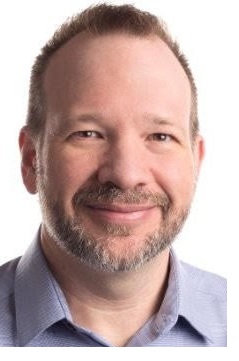 Russell Teague is the Director of Mobile Solutions at EXFO, responsible for the strategic direction, vision, growth, and performance of the company’s Core and RAN assurance business globally. Russell started in telecom more than 25 years ago in the US Navy and has served in leadership roles in operations, engineering, sales, and product management during his career. His experience in the fields of fiber optics, IP networking and mobility enables him to bring a holistic approach to EXFO’s solution strategy. Russell received his bachelor’s degree in computer science from the Georgia Institute of Technology in Atlanta, GA.
Russell Teague is the Director of Mobile Solutions at EXFO, responsible for the strategic direction, vision, growth, and performance of the company’s Core and RAN assurance business globally. Russell started in telecom more than 25 years ago in the US Navy and has served in leadership roles in operations, engineering, sales, and product management during his career. His experience in the fields of fiber optics, IP networking and mobility enables him to bring a holistic approach to EXFO’s solution strategy. Russell received his bachelor’s degree in computer science from the Georgia Institute of Technology in Atlanta, GA.
IPA 2: Europe’s industrial and digital development. The commitment of the European Digital Innovation Hubs
Moderator:
Javier Parra, IoT Digital Innovation Hub - DIGIS3, Spain
Panelists:
Anne-Marie Sassen: European Commission
Jordi Linares: Ministerio de Industria, Spain
Carlos Jesús Bernardos: 5TONIC and UC3M, Spain
Roberto Fraile: Alcobendas Townhall, Spain
Abstract: Suppose we are familiar with the economic structure of the European Union. In that case, we know that industry is one of the essential pillars. According to the latest data, the manufacturing sector accounts for around 2 million companies, 33 million jobs, and about 60% of productivity growth. But digitisation in Europe has three significant problems: Competition with other regions is very high; SMEs do not have many resources to digitise and are falling behind; finally, there are significant disparities within the regions of the European Union itself.
This is where the commitment and value of the European Digital Innovation Hubs come in, as they can solve two of the significant problems of digitisation in Europe, unifying procedures not only with companies and entities but also between regions and countries, giving them all the same opportunities; in addition to supporting companies, especially SMEs, in their digital transformation, not only advising but also comprehensively accompanying users, facilitating the entire process.
According to recent studies, it has been estimated that the digitisation of products and services can add more than 110 billion euros of annual revenue to the European economy in the next five years.
Therefore, this panel will provide all the relevant information regarding the European Union's commitment to developing European Digital Innovation Hubs to digitise industry and territorial development.
Biography:
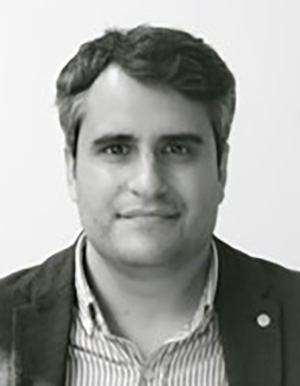 Javier Parra
Javier Parra
Javier Parra (Director of DIH Communication, IoT Digital Innovation Hub, Spain) is a Ph.D Assistant Professor in the Department of Business and Economics Administration at the University of Salamanca. Since 2009, Javier has been complementing his work as a professor with the management of different technology departments in private companies.
He is computer technician from the University of Wales and Master in Macroeconometrics and Finance from the Menéndez Pelayo International University, the Institute of Fiscal Studies and the Centre for Economic and Commercial Studies of Spain. Javier is a member of the BISITE Research Group where he develops his research interests related to economics, technological finance, econometrics and digital intelligence.
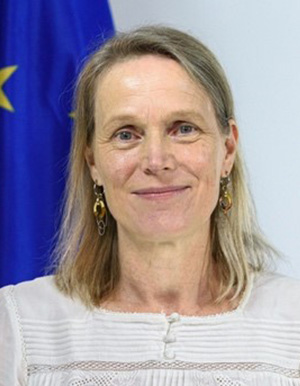 Anne-Marie Sassen
Anne-Marie Sassen
Anne-Marie Sassen (Acting Head of Unit "Digital Transformation of industrial ecosystems", European Commission) is the Acting Head of Unit of the "Digital Transformation of industrial ecosystems" unit in DG CONNECT, European Commission. The Unit’s aim is to ensure that all industrial sectors in Europe benefit from digital transformation through greater efficiency in production processes, higher value digitised products, and new business models. The unit is responsible for the setup of a network of European Digital Innovation Hubs (co-funded between the EU, Member States and/or their regions) to enable all companies and public sector organisations to benefit from digital technologies.
Before joining the European Commission Anne-Marie worked as project manager for Atos in Spain and researcher for TNO in the Netherlands. She studied Computer Science at the University of Leiden, the Netherlands and received her PhD from the Technical University in Delft in the field of Human-Machine interaction
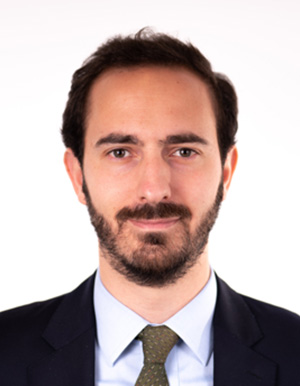 Jordi Linares
Jordi Linares
Jordi Linares (Secretario General de Digitalización de la Industria y Enternos Colaborativos, Ministerio de Industria, Spain) is a Computer Scientist and member of the Spanish Civil Service. Before joining the Public Administration, he worked for Hewlett-Packard as an Engineer. Within the Administration, he has being working for the Finance and the Digital Agenda Ministries, and as a teacher for Fiscal Studies Institute. Currently, he work as a Deputy Director for Industry Digitalization and Collaborative Platforms in the Ministry of Industry.
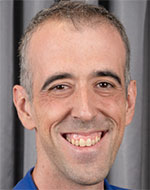 Carlos Jesus Bernardos
Carlos Jesus Bernardos
Carlos Jesús Bernardos, Vice-president of 5TONIC and professor at UC3M, 5TONIC, Spain
Carlos Jesus Bernados is a telecommunications engineer and PhD in telematics engineering from the Carlos III University of Madrid. He has worked on several engineering projects, and after finishing his degree, he continued working in research. This allowed him to dedicate himself to two of his great passions: research and teaching. His line of research has been evolving in recent years, but recently he has focused on 5G issues. For a year, he was UC3M's representative in 5TONIC. Since then, he has participated in other European projects where the 5TONIC lab has been used to perform validations and experiments with 5G networks.
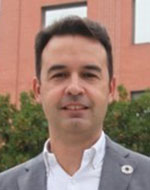 Roberto Fraile
Roberto Fraile
Roberto Fraile (Councilor at Ayuntamiento de Alcobendas, managing the technological areas and the economic development)
Roberto Fraile has been during 20 years designing networks, leading key proposals, evaluating new technologies and researching industry trends.
He is currently starting a new phase in his career as Councilor at Ayuntamiento de Alcobendas, managing the technological areas and the economic development.
Working nowadays on these topics:
- Open Innovation
- Artificial Intelligence (AI)
- Smart Cities
- Open Data & Transparency
- Digital Innovation ecosystems
- Contributor to the European AI Alliance
IPA 3: Unleashing the true power of autonomous networks
Moderator:
Laurent Ciavaglia, Rakuten, France
Panelists:
Imen Grida Ben Yahia, Orange, France
Diego Lopez, Telefonica, Spain
Sven van der Meer, VMware, Ireland
Henning Sanneck, Nokia Bell Labs
Abstract: Lifted by the network automation mega-trend, a third wave of autonomous computing and networking technologies development rises across the ICT industry. Multiple initiatives from Standards Development Organizations (SDOs), large open source projects, preeminent industry actors and renowned academic research teams have been launched in recent years and continue to emerge. This phenomenon deserves careful consideration if one wants to avoid facing the same disillusion as previous attempts at making autonomous networks a reality. While the theoretical and applied research corpus has been extensively contributed, the real world and large-scale adoption of autonomous networks has been, in contrast, relatively limited and disappointing. Since autonomous networks continue to fascinate research and engineers as a technological area full of potential and promise, the goal of this panel is to make a reality check on where we stand on the level of maturity of autonomous networks technologies and what challenges should the industry collectively address to ensure that the promises are met.
Biography:
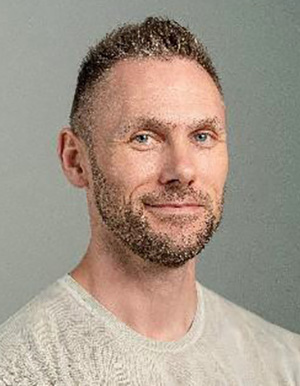 Laurent Ciavaglia
Laurent Ciavaglia
Laurent Ciavaglia is Senior Researcher and Standardization Specialist in the Autonomous Networks Research & Innovation Department at Rakuten Mobile. Previously, Laurent was with Nokia inventing future network automation technologies with focus on intent-driven, zero-touch and artificial intelligence techniques. Laurent is an experienced standards contributor as editor and co-author of multiple specifications in the IETF, IRTF and ETSI in the fields of telemetry, zero-touch networking, intent- based networking, autonomic networking, closed-loop operation and coordination, and integration of machine learning and machine reasoning functionalities in networking environments.
Laurent serves as co-chair of the IRTF Network Management Research Group (NRMG) and participates in standardization activities related to network and service automation in IETF and ETSI. Laurent is also of IEEE ComSoc Standards Liaison Officer of the IEEE Network Intelligence ETI (Emerging Technical Initiative) and an active member of the IEEE ComSoc Technical Committee on Network Operation and Management (CNOM), chair of the CNOM Autonomous Networking Technologies Special Interest Group, after having served as CNOM vice-chair in 2017-2019.
Laurent also has a good experience in organizing multiple special issues as guest editor, international workshops and industry events. Laurent participates regularly to the Organizing and Technical Committees of IEEE CNOM and ComSoc conferences in various roles. Laurent has co-authored 70+ articles in referenced journals and conferences, including more than 30 keynote talks, invited papers, expert panels and tutorials.
More information can be found at https://www.linkedin.com/in/laurentciavaglia/
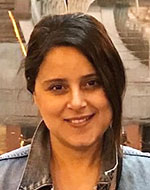 Imen Grida Ben Yahia
Imen Grida Ben Yahia
Imen Grida Ben Yahia is Program Manager/Tech Lead at Orange. She is leading a transverse program on AI and Networks covering several key topics such as Predictive Network Maintenance, Network Traffic Classification, Network configuration Mining, Cyber Security, Smart Energy Consumption, Network Data Ops, etc.). Her main mission is to ease the transformation and empowerment of networks with AI, this includes technical and organizational strategies definition, identification of key network use cases and associated suitable machine Learning/deep learning techniques as well as best practices for capitalization.
She is also researcher and machine learning practitioner with expertise in Predictive Network Maintenance techniques, Intent based networking and Network configuration mining to ensure resiliency and stability of network and services.
Imen is leading the Network Intelligence Initiative within the IEEE COMSOC Framework. She is public speaker in several AI and network related events. Imen received her PhD degree in Telecommunication Networks from Pierre et Marie Curie University in conjunction with Télécom SudParis in 2008.
More information can be found at: https://www.linkedin.com/in/imen-grida-ben-yahia-5168042/
 Diego R. Lopez
Diego R. Lopez
Dr Diego R. Lopez joined Telefonica I+D in 2011 as a Senior Technology Expert and is currently in charge of the Technology Exploration activities within the GCTIO Unit. Before joining Telefónica he spent some years in the academic sector, dedicated to research on network services, and was appointed member of the High-Level Expert Group on Scientific Data Infrastructures by the European Commission.
Diego is currently focused on applied research in network infrastructures, with a special emphasis on virtualization, data-driven management, new architectures, and security. Diego chairs the ETSI ISG on Permissioned Distributed Ledgers and the Network Operator Council ETSI ISG on Network Function Virtualization.
Apart from this, Diego is a more than acceptable Iberian ham carver, and extremely fond of seeking and enjoying comics, and good discussions on any (in)appropriate matter.
More can be found at https://www.linkedin.com/in/dr2lopez/
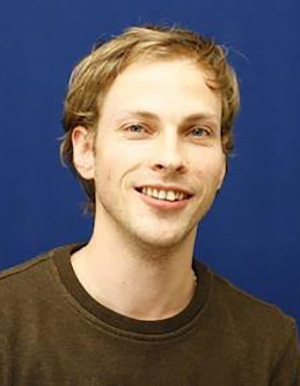 Sven van der Meer
Sven van der Meer
Sven van der Meer received his M.Sc. and PhD from Technical University Berlin in 1996 and 2002. After working for two decades in basic and applied research (Fraunhofer FOKUS, WIT/TSSG), he joined Ericsson in 2011. Here he works as a team leader in the Ericsson Network Management Lab. His main focus is how to tame management complexity, from theory to execution. This work involves research prototype development, deployment in customer networks, and landing successful solutions in the Ericsson OSS products. Topics range from automation to control loops, policy-based management and artificial intelligence. Sven contributes to the wider network management community in research (TPC of IM, NOMS, CNSM and others), standardization (IETF, MEF), and open source (LF, ONAP). Sven is now working as research engineer in VMware building an autonomic grid covering RAN, edge, core, and private mobile networks.
More information can be found at https://www.linkedin.com/in/vdmeer/
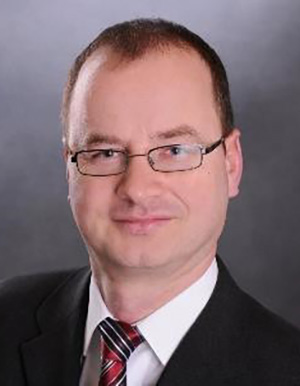 Henning Sanneck
Henning Sanneck
Henning Sanneck received his Dr.-Ing. (PhD) degree in Electrical Engineering from the Technical University of Berlin with a thesis on Voice over IP QoS in 2000. Then, Henning joined Siemens - Mobile Networks as a Senior Research Engineer, becoming an Innovation Project Manager in Radio Network Management in 2003. In 2007, at the formation of Nokia Siemens Networks, he started to lead a line team driving Self Organizing Networks (SON) concepts, IPR and demos for LTE using policy-based management technologies. Since 2009, Henning and his team are working on applying and adapting analytics and machine learning technologies to Radio Network Management (in particular for anomaly detection and diagnosis) using real network data- and simulation-based approaches. In 2014/15, as "Head of Cognitive Network Management" for Nokia Networks Research, he has also acted as the coordinator of the research & standardization work in that technical area which included the strategy development and technology transfer supervision. Henning’s team has been continuously involved in nationally (BMBF) and internationally (EU) funded research projects.
His current research interests are in 5G Network Management and Orchestration, in particular configuration, healing and the operation of Cognitive Functions in virtualized, sliced radio access networks (across public and private deployment scenarios). Henning has published 80 papers and has 30 patents granted or published. He has been co-editor and -author of the book "LTE Self- Organizing Networks" (2011) and co-author of the book "Towards Cognitive Autonomous Networks" (2020).
More information can be found at https://www.linkedin.com/in/henning-sanneck-62529819/
IPA 4: Integrated Sensing and Communication (ISAC), Key Enabler for 6G Industry
Moderator:
Peiying Zhu, Huawei Technologies, Canada
Panelists:
Andeas Müller, Bosch, Germany
Patrick Waldemar, Telenor Group, Norway
Slawomir Stanczak, Fraunhofer HHI, Germany
Tommy Svensson, Chalmers University of Technology, Sweden
Abstract: 6G is believed to continue transforming from connected people, connected things, to connected intelligence. Applications such as interactive immersive experience, machine collaboration in unmanned factories, smart healthcare with real-time body sensing, and ultimately autonomous driving will be promoted and leveraged on a large scale during the next decade. This will lead to significantly higher network performance requirements, such as Tbit/s communication rates and millimeter-level sensing precision at the same time. Integrated sensing and communication (ISAC) thus becomes a key feature of the next generation wireless communications. The use of higher frequency bands (from mmWave up to THz), wider bandwidth, and denser distribution of massive antenna arrays in future 6G systems will enable the integration of wireless signal sensing and communication in a single system to mutually enhance each other. On the one hand, the communications system as a whole can serve as a sensor. It can explore the radio wave transmission, reflection, and scattering to sense and better understand the physical world, providing a broad range of new services. On the other hand, the capabilities of high-accuracy localization, imaging, and environment reconstruction obtained from sensing could help improve the communication performance such as more accurate beamforming, faster beam failure recovery, and less overhead to track the channel state information. Further combined with AI technologies, ISAC is the key enabling technology for the fusion of physical, biological and cyber worlds in a future to come.
Biography:
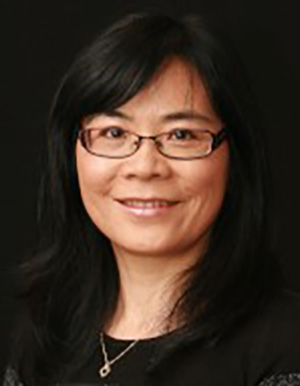 Peiying Zhu
Peiying Zhu
Dr. Peiying Zhu (Fellow, IEEE), Senior Vice President of Wireless Research, a Huawei Fellow, IEEE Fellow and Fellow of Canadian Academy of Engineering. She is currently leading 5G and beyond wireless research and standardization in Huawei. The focus of her research is advanced radio access technologies. She is actively involved in 3GPP and IEEE 802 standards development. She has been regularly giving talks and panel discussions on 5G vision and enabling technologies. She led the team to contribute significantly to 5G technologies. Prior to joining Huawei in 2009, Peiying was a Nortel Fellow and Director of Advanced Wireless Access Technology in the Nortel Wireless Technology Lab. She led the team and pioneered research and prototyping on MIMO-OFDM and Multi-hop relay. Many of these technologies developed by the team have been adopted into LTE standards and 4G products. Dr. Zhu has more than 200 granted patents.
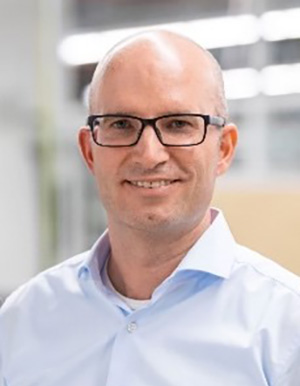 Andreas Mueller
Andreas Mueller
Dr. Andreas Mueller is the Head of Communication and Network Technology in the Corporate Research Department of Robert Bosch GmbH in Stuttgart, Germany and at the same time the Bosch Chief Expert for Communication Technologies for the IoT. In addition to that, he is coordinating the Industrial 5G activities of Bosch across the different business units. He also serves as General Chair of the “5G Alliance for Connected Industries and Automation” (5G-ACIA), the globally leading initiative for driving and shaping Industrial 5G.
Prior to joining Bosch, Andreas was a Research Staff Member at the Institute of Telecommunications of the University of Stuttgart, Germany, where he was contributing to the further development of the 3GPP Long Term Evolution towards LTE-Advanced. Besides, he was working as a Systems Engineer for Rohde & Schwarz, developing a novel software-defined radio based communication system for the German Armed Forces. Andreas holds a German Diploma degree as well as a Ph.D. degree in Electrical Engineering (with distinction) and a M.Sc. degree in Information Technology, all from the University of Stuttgart, Germany.
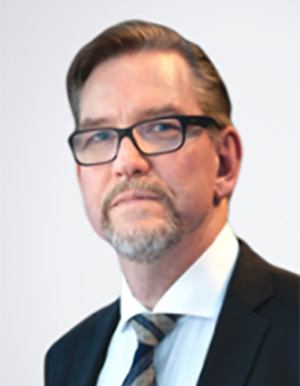 Patrick Waldemar
Patrick Waldemar
Patrick Waldemar joined Telenor in 2002 and is Vice President in Telenor Research. He has more than 20 years of management experience and education within Strategic Management, Strategic Marketing and Information Technology. He holds a Ph.D. in Telecommunication from NTNU and a Master of Management from Oslo Business School (BI). He has experience from research & development in telecommunications and the oil industry, software development and strategic management work. Over the last 8 years, Patrick has been head of Telenor's research on next generation network technologies focusing on 5G and 6G. Previously he has been head of development in Canal Digital.
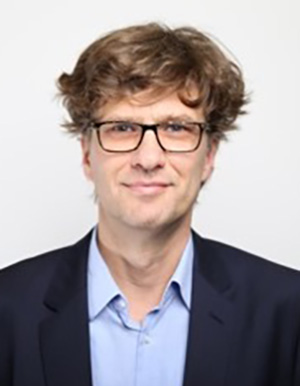 Slawomir Stanczak
Slawomir Stanczak
Slawomir Stanczak studied electrical engineering with specialization in control theory at the Wroclaw University of Technology and at the Technical University of Berlin (TU Berlin). He received the Dipl.-Ing. degree in 1998 and the Dr.-Ing. degree (summa cum laude) in electrical engineering in 2003, both from TU Berlin; the Habilitation degree (venialegendi) followed in 2006. Since 2015, he has been a Full Professor for network information theory with TU Berlin and the head of the Wireless Communications and Networks department at Fraunhofer Institute for Telecommunications, Heinrich Hertz Institute (HHI). Prof. Stanczak is a co-author of two books and more than 200 peer-reviewed journal articles and conference papers in the area of information theory, wireless communications, signal processing and machine learning.He was an Associate Editor of the IEEE Transactions on Signal Processing between 2012 and 2015.
Since February 2018 Prof. Stanczak has been the chairman of the ITU-T focus group on machine learning for future networks including 5G.
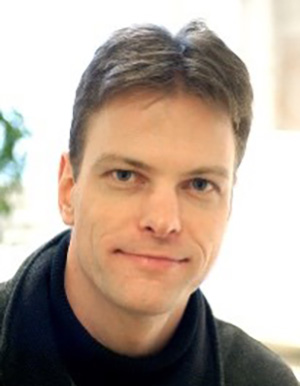 Tommy Svensson
Tommy Svensson
Tommy Svensson is full Professor in Communication Systems at Chalmers University of Technology in Gothenburg, Sweden, where he is leading the Wireless Systems research on air interface and wireless backhaul networking technologies for future wireless systems. He received a Ph.D. in Information theory from Chalmers in 2003, and he has worked at Ericsson AB with core networks, radio access networks, and microwave transmission products.
He was involved in the European WINNER I, WINNER II, WINNER+ and ARTIST4G projects that made important contributions to the 3GPP LTE standards, the EU FP7 METIS and the EU H2020 5GPPP mmMAGIC and 5GCar projects towards 5G and currently the Hexa-X, RISE-6G and SEMANTIC projects towards 6G, as well as in the ChaseOn antenna systems excellence center at Chalmers targeting mm-wave and (sub)-THz solutions for 5G/6G access, backhaul/ fronthaul and V2X scenarios. His research interests include design and analysis of physical layer algorithms, multiple access, resource allocation, cooperative systems, moving networks, and satellite networks.
He has co-authored 5 books, 96 journal papers, 130 conference papers and 55 public EU projects deliverables. He is Chairman of the IEEE Sweden joint Vehicular Technology/ Communications/ Information Theory Societies (VT/COM/IT) chapter, founding editorial board member and editor of IEEE JSAC Series on Machine Learning in Communications and Networks, has been editor of IEEE Transactions on Wireless Communications, IEEE Wireless Communications Letters, Guest editor of several top journals, organized several tutorials and workshops at top IEEE conferences, and served as coordinator of the Communication Engineering Master’s Program at Chalmers.
IPA 5: Emerging and Future Trends in Satellite Communications
Moderator:
Mohamed-Slim Alouini, KAUST, Saudi Arabia
Panelists:
Nelson Malaguti, International Telecommunication Union (ITU)
Suzanne Malloy, SES, Luxembourg
Helka-Liina Määttänen, Ericsson Research, Finland
Michel Sarthou, Kinéis, France
Abstract: Satellite communication (SatCom) offers the prospect of service continuity over uncovered and under-covered areas, service ubiquity, and service scalability. In addition, the integration of SatCom, aerial networks, and terrestrial communications into a single wireless network, called space-air-ground integrated network (SAGIN), is deemed from now on crucial. However, several challenges must first be addressed to realize these benefits, as the resource management, network control, network security, spectrum management, and energy usage of satellite networks are more challenging than that of terrestrial networks. This panel will offer a general overview of emerging and future trends in SatCom. More specifically, the potential of SatCom and then the challenges facing diverse aspects of these systems will be discussed. The panel will also be a forum to debate the various proposed solutions.
Biography:
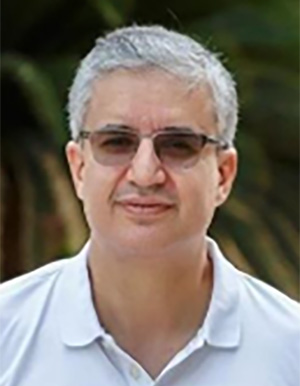 Mohamed-Slim Alouini
Mohamed-Slim Alouini
Mohamed-Slim Alouini was born in Tunis, Tunisia. He received the Ph.D. degree in Electrical Engineering from the California Institute of Technology (Caltech) in 1998. He served as a faculty member at the University of Minnesota then in the Texas A&M University at Qatar before joining in 2009 the King Abdullah University of Science and Technology (KAUST) where he is now a Distinguished Professor of Electrical and Computer Engineering.
Prof. Alouini is a Fellow of the IEEE and of the OSA. He is currently particularly interested in addressing the technical challenges associated with the uneven distribution, access to, and use of information and communication technologies in far-flung, rural, low-density populations, low-income, and/or hard-to-reach areas.
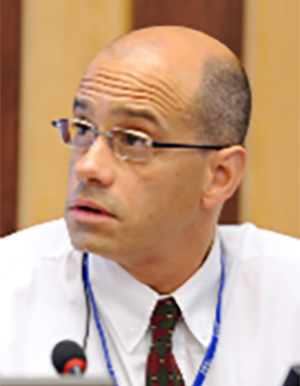 Nelson Malaguti
Nelson Malaguti
Nelson Malaguti is Counsellor at the Radiocommunication Bureau (BR) of the International Telecommunication Union (ITU). He is responsible since June 2006 for ITU-R Study Group 4 on Satellite services and the Coordination Committee for Vocabulary. Previous to taking up his current duties, he worked at EMBRATEL in Brazil, involved in the coordination, notification and registration process for the Brazilian satellite networks. He received the M.Sc degree in telecommunications engineering from PUC-RIO, Brazil. He then worked in the Space Services Department of the Radiocommunication Bureau (BR) of the ITU, having participated actively at World Radiocommunication Conferences (WRC) such as WRC-97, WRC-2000 and WRC-03. He also participated actively at WRC-07, WRC-12 and WRC-15 and is currently actively involved in the preparations for WRC-19.
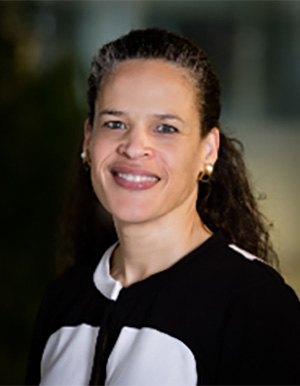 Suzanne Malloy
Suzanne Malloy
Suzanne Malloy is Vice President, Regulatory Affairs for SES, with responsibility for market access strategy, advocacy and licensing, including for SES’s satellite-enabled MEO global connectivity solutions. Ms. Malloy has worked on satellite regulatory matters for over 20 years, in both the private and public sectors, managing satellite and earth station licensing, satellite policy advocacy and spectrum regulatory issues. Prior to joining SES, Ms. Malloy served as Vice President, Regulatory for DBSD North America, and acted as Senior Regulatory Counsel for Teledesic. Ms. Malloy began work in the satellite sector as Attorney-Advisor in the International Bureau of the U.S. Federal Communications Commission, issuing satellite licenses and participating in treaty negotiations related to satellite market access.
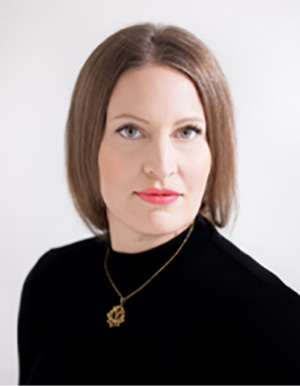 Helka-Liina Määttänen
Helka-Liina Määttänen
Helka-Liina Määttänen is a Master Researcher at Ericsson Research, Finland. She has been contributing to the 3GPP standardization over 10 years. Her topics have included MIMO, CoMP, interference management, LTE-WLAN interworking, FeMBMS, 5G NR mobility, Aerials (Rel-15 work item rapporteur) and NR connectivity via satellites. In recent years she has published in the area of satellites and UAVs. She is a co-author of the books “5G New Radio: A Beam-based Air Interface” Whiley, published in April 2020 and “UAV Communications for 5G and Beyond”, Wiley, published in December 2020. She has also been invited speaker and panelist at conferences and workshops organized by research, regulatory as well as standardization associations. She holds a Ph.D. degree in communications engineering from the Helsinki University of Technology.
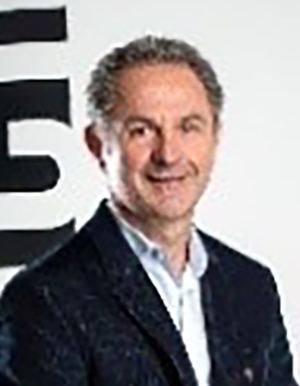 Michel Sarthou
Michel Sarthou
Michel Sarthou took on the Technical Direction of Kinéis in 2019 after having been Project Manager for Argos, space IoT technology on which Kinéis is based, at CNES (French Space Agency) for nearly 15 years. A graduate of ENSEEIHT Toulouse, he directly joined CNES where he worked on many subjects including radio-frequency R&D, the ROSETTA - PHILAE project with ESA, then the Sarsat program and the Cospas-Sarsat mission.
IPA 6: Industrial IoT: key technology enablers for its evolution
Moderator:
Valerio Frascolla, Intel, Germany
Panelists:
Claudio Ambra, CTO EXOR International, Italy
Thomas Hahn, Siemens, Germany
Dr. Andreas Mueller, Bosch, Germany
Dr. Peter von Wrycza, Ericsson, Sweden
Abstract:
In the still ongoing transition from Industry 3.0 to Industry 4.0, the technologies that are considered part of Industrial Internet of Thing (IIoT) play a key role. With the introduction of new technologies new market opportunities arise, as well as new challenges. How to unlock the value of IoT and how to balance the contradictory requirements of high reliability and very low latency? Is a new standard needed? IIoT is more and more based on visual-based computing, e.g., for early fault detection, inspection, or remote control. What are the best technologies that can in a reliable manner transmit such huge amount of data produced by high-definition cameras? Are wireless technologies suitable to do the job or do we have to necessarily use wired connections? What is the added value for IIoT of initiatives like GAIA-X and the recently born Data Space Business Alliance? Is the path towards Industry 5.0 already defined, and if so, when will the broader society benefit from its introduction? These are some of the issues that this Panel will tackle.
Biography:
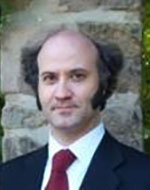 Valerio Frascolla
Valerio Frascolla
Dr Valerio Frascolla (MSc and PhD in Electronic Engineering) is Director of Research and Innovation at Intel in Munich and had been working in different roles at Ancona University, Comneon, Infineon, as reviewer for the European Commission, and as independent evaluator for the Portuguese Foundation for Science and Technology. He is in the advisory board of the projects LIPS, ULTRAWAVE, FORTE, and INTERCONNECT, and has served in different roles in other 17 funded research projects. Valerio has expertise in wireless systems architecture and requirements management, standards bodies attendance (3GPP, ETSI, IEEE), project and program management, and coaching. He is author of 75+ publications, his main research interest being 5G and beyond system design, with focus on spectrum management, AI, and edge technologies. He serves as reviewer for 30+ journals, has participated in the TPC of 80+ conferences, is Associated Editor of IET Quantum Communication, Managing Editor of ELSEVIER 2021 Optical Fiber Technology (Special Issue on "Fiber Optic for 5G”), Guest Editor of MDPI Sensors (Special Issue on ‘Experimentation in 5G and beyond networks: State of the art and the way forward‘), and has a track record as organizer of Special Sessions, Workshops, and Panels at international conferences (ICC, WCNC, VTC, EUCNC, EUCAP, EUSIPCO, EWSN, DySPAN, CROWNCOM, and ISWCS). Valerio is very active in the European ecosystem, being Board of Directors member of the BDVA association, representing Intel in 5G-IA (serving as chairman of the 5G Vertical Workgroup), in the ETP NetworldEurope (serving as co-chair of the Enabling Technologies for Future Vertical Ecosystem Transformation Workgroup), in Digital Europe (R&I Workgroup), in AIOTI (serving as co-chairman of the Research and Collaboration Wok Group), and finally in the German Bitkom association.
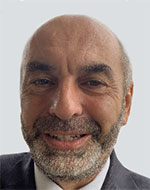 Claudio Ambra
Claudio Ambra
From the beginning of the eighties when EXOR International was still a small innovative startup, Claudio Ambra worked in the Research and Development Department. His role was to carry out several projects of microprocessor and FPGA systems as a developer for Industrial controller and Embedded Systems. Claudio has more than 20 years' experience in Hardware, Firmware development as Team Project Leader for Industrial Control systems and products.
In 2009 he became the CTO of Exor International, and from 2015 he joined the Board of Directors of Exor International. His remit is to lead the R&D teams in the design of innovative Exor International's Digital Automation platform for Industry 4.0.
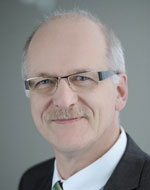 Thomas Hahn
Thomas Hahn
Thomas Hahn is since 2011 Chief Expert Software at Siemens AG. After studying computer science at Friedrich-Alexander University of Erlangen he joined the company in 1986. Thomas Hahn had several responsibilities in the area of manufacturing such as Head of Software Development for Industrial Automation Systems.
Beyond his activities at Siemens, Thomas Hahn is a member or board member of various bodies, including Openlab CERN and steering committee Plattform Industrie 4.0. He is vice-president OPC Foundation, Vice-Chairperson Gaia-X AISBL, chairman of Labs Network Industrie 4.0, Boardmember of the Bavarian “KI-Rat” and president Big Data Value Association.
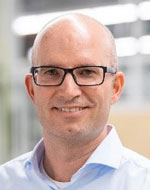 Dr. Andreas Mueller
Dr. Andreas Mueller
Dr. Andreas Mueller is the Head of Communication and Network Technology in the Corporate Research Department of Robert Bosch GmbH in Stuttgart, Germany and at the same time the Bosch Chief Expert for Communication Technologies for the IoT. In addition to that, he is coordinating the Industrial 5G activities of Bosch across the different business units and plants. He also serves as General Chair of the “5G Alliance for Connected Industries and Automation” (5G-ACIA), the globally leading initiative for driving and shaping Industrial 5G .
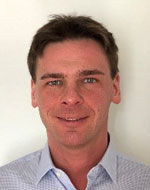 Dr. Peter von Wrycza
Dr. Peter von Wrycza
Peter von Wrycza was born on November 14, 1981. He received a M.Sc. degree with highest honors (summa cum laude) in Electrical Engineering (EE) from the Royal Institute of Technology (KTH), Stockholm, in 2005. He was an EE graduate student at Stanford University, CA, and a visiting researcher at the Information Systems Lab (ISL), Stanford University, in 2003-2004 and 2004-2005, respectively. In December 2010, he defended his doctoral thesis in Telecommunications at the Signal Processing Lab in the school of EE, KTH. Dr. von Wrycza held an Honor Graduate Student position (Excellenstjänst) awarded by the dean's office at KTH and received an Honor Grant (Honnörsstipendium) for being the best graduate student of the year at EE in 2005. Dr. von Wrycza joined Ericsson in 2011 and has held different positions in the areas of 3GPP standardization, 5G research and the IoT. He currently serves as Head of IoT and Cyber-Physical Systems Research at Ericsson Research, where he drives the research, development and standardization activities for the IoT and Cyber-Physical Systems. He is co-author of the book ‘HSPA Evolution: The Fundamentals for Mobile Broadband’, Academic Press, Elsevier, and is member of several boards and research & innovation councils in the area of IoT.
IPA 7: 5G and beyond - The Perspective of European Research Projects
Moderators:
Fernando J. Velez, Universidade da Beira Interior, Covilha, Portugal
Periklis Chatzimisios, International Hellenic University, Greece
Panelists:
Christos Masouros, University College London, UK
Albena Mihovska, Aarhus University, Herning, Denmark
Ramon J. Duran Barroso, University of Valladolid, Spain
Harilaos Koumaras, Institute of Informatics and Telecommunications of NCSR, Greece
Pedro Sebastiao, ISCTE-Instituto Universitario de Lisboa
Abstract:
Biography:
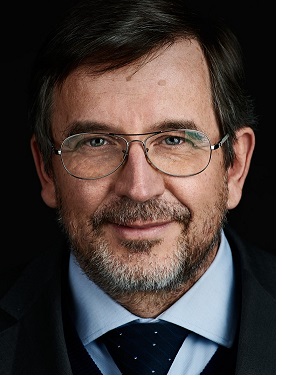 Fernando J. Velez
Fernando J. Velez
Fernando J. Velez received his Licenciado, M.Sc. and Ph.D. degrees in Electrical and Computer Engineering from Instituto Superior Tecnico, Technical University of Lisbon, in 1993, 1996 and 2001, respectively. Since 1995, he has been with the Department of Electromechanical Engineering, Universidade da Beira Interior, Covilha, Portugal, where he is an Assistant Professor. He is also a senior researcher at Instituto de Telecomunicacoes. Fernando is the coordinator of the Instituto de Telecomunicacoes team in the Marie Sklodowska-Curie ITN Action (TeamUp5G), which began in 2019. Among various project leaderships and participations, recently, he was the coordinator of CONQUEST (CMU/ECE/0030/2017), an exploratory project from Carnegie Mellon University (CMU) Portugal, a collaboration with the Department of Engineering and Public Policy, CMU. His main research areas are cellular planning tools, traffic from mobility, wireless body sensor networks and wearable technologies, cross-layer design, spectrum sharing/aggregation, and cost/revenue performance of advanced mobile communication systems.
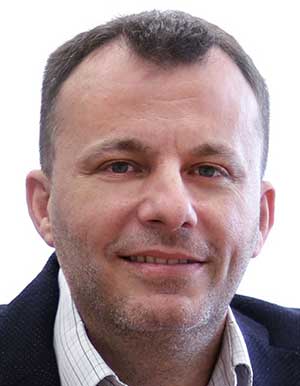 Periklis Chatzimisios
Periklis Chatzimisios
Periklis Chatzimisios serves as Professor in the Department of Information and Electronic Engineering at the International Hellenic University (Greece). He has been recently awarded the title of Research Professor by the University of New Mexico (USA). He is also a Visiting Fellow in the Faculty of Science & Technology, at Bournemouth University, UK. Dr. Chatzimisios is/has been involved in several standardization and IEEE activities serving as a Member of IEEE ComSoc Education Services Board, Member of the IEEE ComSoc Standards Program Development Board and Industry Outreach Board under the IEEE Communication Society (ComSoc). He is the Chair of the Communications Chapter and Professional Activities for the IEEE Greece Section and also serves as the Chair of ComSoc Technical Committee on Information Infrastructure and Networking (TCIIN), the Vice Chair of ComSoc Technical Committee on Big Data (TCBD) and an active member of the IEEE Future Networks (5G) Initiative.
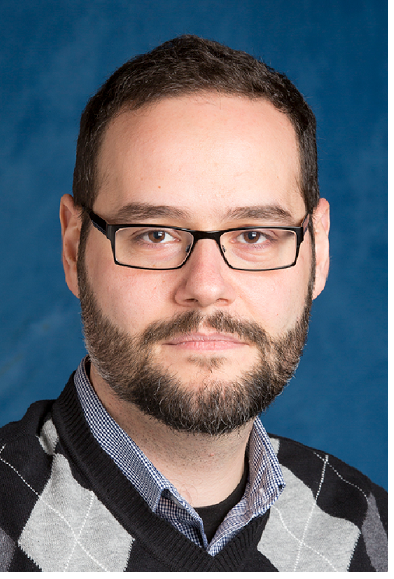 Christos Masouros
Christos Masouros
Christos Masouros received the Diploma degree in Electrical and Computer Engineering from the University of Patras, Greece, in 2004, and MSc by research and PhD in Electrical and Electronic Engineering from the University of Manchester, UK in 2006 and 2009 respectively. In 2012 he joined University College London as a Lecturer. He has held a Royal Academy of Engineering Research Fellowship between 2011-2016. Since 2019 he is a Full Professor of Signal Processing and Wireless Communications in the Information and Communication Engineering research group, Dept. Electrical and Electronic Engineering, and affiliated with the Institute for Communications and Connected Systems, University College London. He was the recipient of the Best Paper Awards in the IEEE GlobeCom 2015 and IEEE WCNC 2019 conferences, and has been recognised as an Exemplary Editor for the IEEE Communications Letters, and as an Exemplary Reviewer for the IEEE Transactions on Communications. He is an Editor for IEEE Transactions on Communications, IEEE Transactions on Wireless Communications, the IEEE Open Journal of Signal Processing, and Editor-at-Large for IEEE Open Journal of the Communications Society. He is a founding member and Vice-Chair of the IEEE Emerging Technology Initiative on Integrated Sensing and Communications, Vice Chair of the IEEE Special Interest Group on Integrated sensing and communications (ISAC), and Chair of the IEEE Special Interest Group on Energy Harvesting Communication Networks.
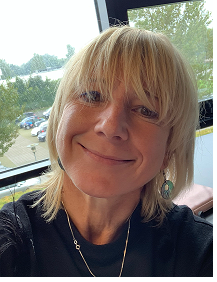 Albena Mihovska
Albena Mihovska
Albena Mihovska is a Senior Academic and Research Professional, currently an Associate Professor at the Dept of Business Development and Technology (BTECH), at Aarhus University, Herning, Denmark. She is leading the 6G Knowledge Research Lab at the CTIF Global Capsule(CGC) research group at BTECH and is the Technical Manager of several EU-funded projects in the area of Beyond 5G networks, including the MC-ITN MOTOR5G coordinated by Aarhus University. She is a member of IEEE, INFORMS and has more than 150 publications.
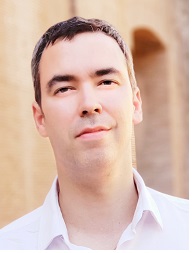 Ramon J. Duran Barroso
Ramon J. Duran Barroso
Ramon J. Duran Barroso received the degree in telecommunication engineering and the Ph.D. degree from the University of Valladolid, Spain, in 2002 and 2008, respectively. He currently works as an Associate Professor with the University of Valladolid. He is also the Coordinator of the Spanish Research Thematic Network ``Go2Edge: Engineering Future Secure Edge Computing Networks, Systems and Services'' composed of 15 entities and the H2020 IoTalentum Project. He has authored more than 100 papers in international journals and conferences. His current research interests include the use of artificial intelligence techniques for the design, optimization, and operation of future heterogeneous networks, multi-access edge computing, and network function virtualization.
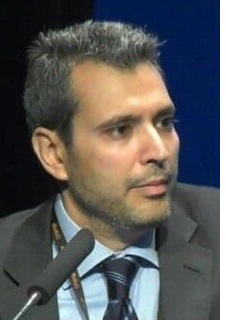 Harilaos Koumaras
Harilaos Koumaras
Harilaos Koumaras is a research assistant professor at the Institute of Informatics and Telecommunications of NCSR “Demokritos”, Greece. He has published more than 100 articles focused on 5G/B5G systems, network virtualization, SDN/NFV, MANO, and quality of service/experience in media delivery. He is the project coordinator of H2020 5GPPP 5GENESIS, technical manager of H2020 5GPPP EVOLVED-5G and Athens platform leader of H2020 5GPPP 5G!DRONES projects.
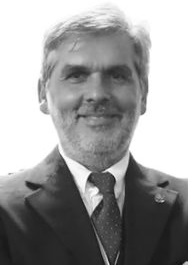 Pedro Sebastiao
Pedro Sebastiao
Pedro Sebastiao, PhD. in Electrical and Computer Engineering at IST, currently professor at ISCTE-Instituto Universitario de Lisboa at Information Science and Technology Department, He is Board Director of AUDAX ISCTE-Innovation and Entrepreneurship Centre at ISCTE, responsible for Public National and International Projects and Innovation & Entrepreneurship Programs, and he is also researcher at Instituto de Telecomunicacoes. He has been responsible for several national and international R&D projects. He has supervised several MSc. and PhD. thesis. He has been an expert and evaluator of more than one hundred national and international Civil and Defense R&D and Innovation projects. Pedro is the recipient of several scientific, engineering and pedagogical awards. His main research interests are in monitoring, control and communications of drones, unmanned vehicles, planning tools, stochastic process (modeling and efficient simulations), internet of things, efficient communication systems and business models.
IPA 8: Higher bandwidth and shortened latency requirements in PRIME Broadband Powerline (BPL)
Moderator:
Miguel Ángel Sánchez Fornié, PRIME Alliance
Panelists:
Peter Sobotka, Corinex Communications Group
Markus Hofsäß, E.ON, Germany
Víctor Domínguez Richards, Arkossa, Spain
Andrea M. Tonello, University of Klagenfurt, Austria
Abstract:
PRIME’s Broadband Powerline (BPL) solution caters to the higher bandwidth and shortened latency requirements for a more active network. It allows for a reliable communications network, enabling ownership and management of communications over the low voltage/medium voltage grid. As with other PRIME technologies and solutions, PRIME BPL offers an open, interoperable solution to address the needs of utilities and their customers by providing high-speed connectivity extending the capabilities that can be obtained with NBPLC.
Biography:
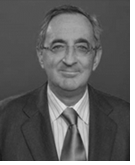 Miguel Ángel Sánchez Fornié
Miguel Ángel Sánchez Fornié
Miguel Ángel Sánchez Fornié is the General Secretary of the PRIME Alliance and currently Research affiliate and professor in the University Comillas, ICAI School of Engineering IIT and visiting professor in the University of Strathclyde, Glasgow. He was the former Director of Smart Grids in IBERDROLA (reporting to Global Networks CEO). Miguel Angel holds degrees in Electrical Engineering from ICAI Universidad de Comillas and Nuclear Safety from M.I.T.
 Peter Sobotka
Peter Sobotka
Dr. Peter Sobotka is a successful serial entrepreneur who built his first company from 0 to $125 million from an initial investment of $700. He has made over $300 million in direct sales and published over 20 research papers and books. His is the current Chair of the BPL Task Force for the PRIME Alliance, as well as the Chair of The Technical Committee of the National Electricity Roundtable in Canada. Peter holds a PhD in Physics, with completed fellowships at Texas A &M University, and Tohoku University in Sendai, Japan.
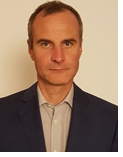 Markus Hofsäß
Markus Hofsäß
Markus Hofsäß holds a Degree of telecommunication (University of Stuttgart) and Master Professional (CCI) of Technical Management. He has ten years of experience in semiconductor Industry. Since 2010 he is working for E.ON / Bayernwerk in the field of Process Data Management. Among their responsibilities, he is team leader of “Smart Grid Network Development” inside E.ON, coordinator of “Smart M2M Communication” inside E.ON and Bayernwerk – Communication in low and medium Voltage, and coordinator E.ON Broadband Powerline rollout.
 Víctor Domínguez Richards
Víctor Domínguez Richards
Víctor Domínguez Richards (Arkossa CEO) is a telecommunications engineer with nearly 30 years experience in the energy and telecoms sectors. Richards has extensive experience managing organisations, some of which he has founded.
These include founding Design of Systems on Silicon (DS2), managing Comtrends’ technical dept. and managing two companies of the Amper Group. He also holds a professor post at the Polytechnic University of Valencia where he has lectured for 18 years and is an inventor in several patents related to Broadband Powerline Communications. He has also been active in the regulatory and standardization arenas, having been a board member of ETSI, the chairman of the ETSI PLT committee and an active member of many international bodies including CENELEC, IEEE, ITU, ARIB, NIST and IE.
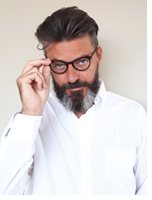 Andrea Tonello
Andrea Tonello
Andrea Tonello is professor of embedded communication systems at the University of Klagenfurt, Austria. He has been associate professor at the University of Udine, Italy, technical manager at Bell Labs-Lucent Technologies, USA, and managing director of Bell Labs Italy where he was responsible for research activities on cellular technology. He is co-founder of the spin-off company WiTiKee and has a part-time associate professor post at the University of Udine, Italy. Dr. Tonello received the PhD from the University of Padova, Italy (2002). He was the recipient of several awards including: the Lucent Bell Labs Recognition of Excellence Award (1999), the RAENG (UK) Distinguished Visiting Fellowship (2010), the IEEE Vehicular Technology Society (VTS) Distinguished Lecturer Award (2011-15), the IEEE Communications Society (ComSoc) Distinguished Lecturer Award (2018-19), the IEEE ComSoc TC-PLC Interdisciplinary and Research Award (2019), the IEEE ComSoc TC-PLC Outstanding Service Award (2019), and the Chair of Excellence from UC3M (2019-20). He also received 10 best paper awards. He was the chair of the IEEE ComSoc Technical Committee on PLC, and he was/is associate editor of IEEE TVT, IEEE TCOM, IEEE ACCESS, IET Smart Grid, Elsevier Journal of Energy and Artificial Intelligence. He is the chair of the IEEE ComSoc Technical Committee on Smart Grid Communications. He has been appointed director for industry outreach in the IEEE ComSoc BoG.



